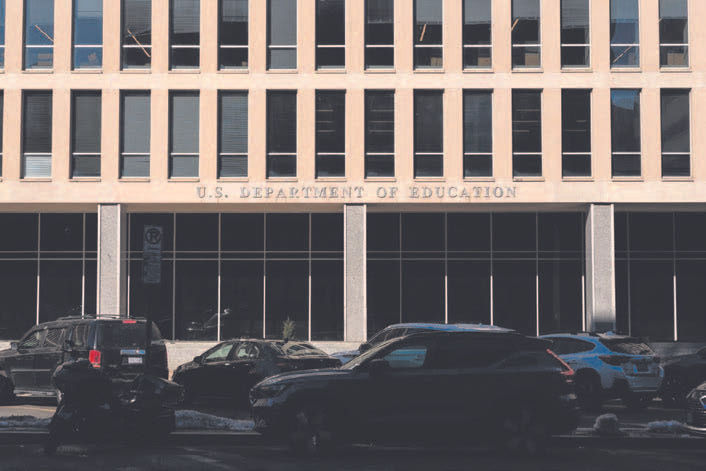Trump is building a maximalist government
- The San Juan Daily Star

- Aug 11
- 3 min read

By Jess Bidgood
When he was running for president last year, Donald Trump and his allies promised to increase the power of the presidency over the rest of the federal government. He has moved aggressively to keep that promise, clashing with courts and steamrolling Congress as he works to stamp out pockets of independence.
But it’s not just that Trump wants more power over the federal government. He is also trying to give the federal government more power over society itself.
Since Monday, the Trump administration has moved to assert new power over institutions like colleges and banks. He has ordered a surge of law enforcement in Washington, D.C., a city that ostensibly has home rule. He has dialed up pressure on state lawmakers across the country to further shore up his power through redistricting — a goal he is also pursuing with his efforts to redo the census in pursuit of a count that would be more favorable to Republicans.
It’s presidential maximalism in action. It’s also an extension of his efforts to punish companies for diversity, equity and inclusion initiatives, and to crack down on law firms and universities.
“What this shows is that, it’s sort of soaking in; it’s permeating more and more deeply into various aspects of society,” said Daniel Farber, a professor of law at the University of California, Berkeley, who was written about presidential power.
The approach, Farber said, is “very contrary to the traditional small government view of conservatives.” Instead, he said, it’s “one that really aims to change both the sort of political system and the culture.”
Here are four areas in which Trump sought to expand the government’s reach this week.
1. Education: On Thursday, Trump signed a directive requiring the Education Department to collect even more detailed data on college applicants, including information on race, gender, test scores and GPAs. That creates something conservative activists have long wanted: a role for the federal government in scrutinizing admissions at public and private universities alike, with an eye to ensuring that the use of affirmative action has been firmly stamped out.
Justin Driver, a Yale Law School professor, told New York Times reporters that the policy could chill universities’ consideration of race as part of a holistic review of student applications. “It signals the Trump administration’s efforts to depress Black and brown enrollment, and intimidate universities into decreasing Black and brown enrollment,” he said.
2. Banking (well, debanking): Another presidential action Thursday instructed federal agencies and regulators to try to stop banks from barring customers for what Trump described as political or religious reasons — something that mostly right-leaning groups have complained about, although the evidence is spotty.
The order, New York Times reporter Rob Copeland wrote, raised the specter of federal prosecution of banks, because it ordered regulators to refer some complaints about it to the attorney general’s office.
3. Voting: In an attempt to protect Republicans’ House majority — and, in the process, inoculate himself from congressional oversight — Trump is seeking a middle-of-the-decade redrawing of House maps in red states. It is, as New York Times reporter Tyler Pager wrote this week, a test of his power well beyond Washington as he tries to rewrite the rules to increase his political advantage.
He also ordered the Commerce Department this week to begin work on a new census that would not include immigrants in the country illegally, a move that could further shift seats from Democratic states to Republican ones and enshrine an edge for Trump and his allies.
4. Washington, D.C: After Edward Coristine, a member of the Department of Government Efficiency who is better known as Big Balls, was assaulted in Washington, the president ordered a surge of federal law enforcement agents to be deployed in the nation’s capital, which has its own police force. He threatened to have the federal government take control of the city of 700,000 people if it did not “get its act together.” (In January, officials announced that violent crime in the city had hit a 30-year low.)
Trump, for his part, has denied that he is seeking to grow the power of the presidency and the government. He says he’s simply asserting the power that’s already granted him and doing exactly what he promised he would as president.
“I don’t feel I’m expanding it,” Trump told Time magazine in April. “I think I’m using it as it was meant to be used.”





Comments